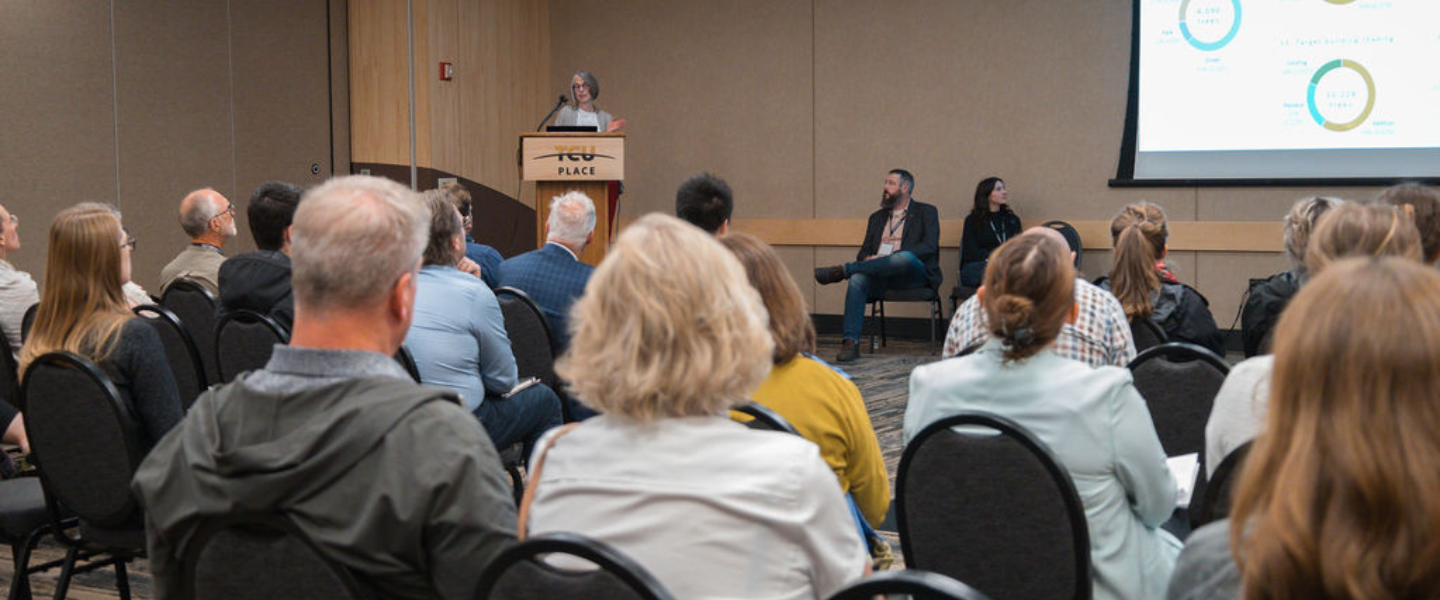
On April 23rd, 2024 at our Virtual Congress, you will hear from the following education session speakers.
To join in the Virtual Congress, you can either register for only the virtual event, or when you register for the in-person event, you will be automatically registered for the virtual event as well. See you there!
2:40 pm - Education Session A: Colleen Mercer Clarke, Saving Nature: Our role in the fight to sustain biodiversity at home and abroad
COP15 on biodiversity held (Montréal 2022) was a global discussion on the rapid deterioration in ecosystems, species and habitats. Nations at the COP, including Canada, ratified the Global Biodiversity Framework intended to reverse this downward trend, to protect the wild that is left, to restore and enhance ecosystems, and to sustain biodiversity on all landscapes, including heavily populated landscapes. IFLA and the CSLA partnered with the IUCN to promote a better understanding of the need for collaboration among scientists, professionals, decision-makers, and communities. This presentation will highlight the work the profession is undertaking from the international and national scales to the local delivery of reformative change. This virtual presentation on international and national efforts will be delivered by Colleen Mercer Clarke, and linked to a longer in person presentation on local action by Jane Welsh.
3 pm - Education Session B: Catherine Auger, Jardin de bord de mer: vivre avec un littoral en transition
A major storm event in 2010 along the Lower St. Lawrence River forced many landowners to relocate their homes, prompting more shoreline lots to transfer to municipal jurisdiction. Practice Landscape, in collaboration with the municipality of Sainte-Flavie and Les Jardins de Métis, has been working to address the consequences of climate change in rural Quebec. The presentation focuses on Jardin de bord de mer, a community-led effort that emphasizes small-scale and local adaptations to climate change by valuing the land that is left behind after retreat. The shoreline gardens do so by working with the adaptive capacity of plant life to address extreme shoreline erosion. As landscape architects, accepting a transitional shoreline means asking how to work with changing conditions rather than how to preserve them. Designing a series of gardens in lieu of restoring existing, fragile ecologies forces consideration of how the profession evolves and adapts to the complexities of the 21st century.
3:20 pm - Education Session C: Corey Dawson, A grading design tool for landscape architects: Using River Builder for nature-based solutions to riverscape restoration and flood risk management
Flooding is prevalent in Nova Scotia and aging gray infrastructure is not flexible enough to meet new hydrology demands. Nature-based solutions are integral for resilient riverscapes and design tools available to non-geomorphologists are valuable for analyzing design scenarios in the planning phase. River Builder is a useful design tool for landscape architects and is based on principles in fluvial geomorphology that derives synthetic 3D digital river surfaces with geomorphic covariance structures built into the software that respond to input variables. This project showcases a River Builder-derived grading design as an inclusive approach to flood risk management and allows for ecological restoration analysis with nature-based planning solutions. A real-world site is used as a case study and applies analytical methods for developing and systematically testing a 3D digital riverscape design. Metrics allow for quantification of surface water storage and flow velocity to reduce downstream flooding and of habitat heterogeneity and geomorphic unit mapping of ecological importance. This data-driven approach identifies geomorphic and ecological design objectives and promote riverscape properties that allow natural flood resilience while enhancing ecological habitat quality.
3:40 pm - Education Session D: Kristina Zalite & Cory Douglas, A Case Study on Decolonizing Design at the Riverside Housing Project
This presentation is a reporting-back of a case study research initiative that looks at efforts towards anti-colonialism during a development permit design process for a supportive housing project on unceded Matsqui and Semá:th (Sumas) First Nations land on the Coast Salish Territory of British Columbia. The presentation explains the research process, and how the study revealed that the design project was augmented with decolonizing approaches such as continuous cultural advisory services, a principal of relationality, and multiple placeholders for programming the site with imagined designs. The presentation shares some unsuccessful decolonizing tactics, and how these could have been implemented to make a transition from individual to organizational decolonizing practices. We are grateful to the LACF and Vancity for providing an opportunity to do this research, and to share our learnings with other practitioners.